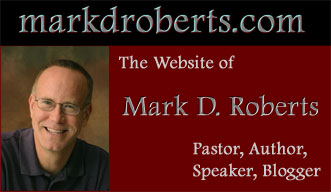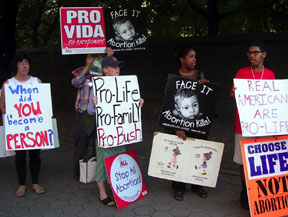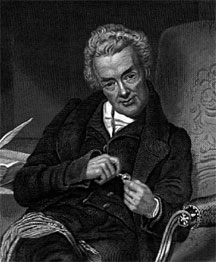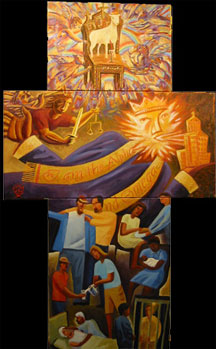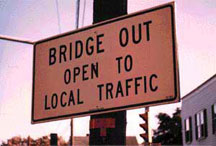| |
A Resource by Mark D. Roberts |
|
Evangelical Christians and Social Activism:
Will a New Statement Promote the Health of the Nation?
Section 1 of 2
by Rev. Dr. Mark D. Roberts
Copyright © 2005 by Mark D. Roberts
Note: You may download this resource at no cost, for personal use or for use in a Christian ministry, as long as you are not publishing it for sale. All I ask is that you give credit where credit is due. For all other uses, please contact me at mark@markdroberts.com . Thank you.
A New Statement on Christian Civic Responsibility 
Part 1 of the series: Evangelical Christians and Social Activism: Will a New Statement Promote the Health of the Nation? 
Posted for Thursday, June 23, 2005
Recently there's been a lot of hubbub about the social activism of conservative Christians (see my last series, The Great Commission and the "Christers"). Former Presidential candidate Al Gore blasted conservative Christian efforts to end judicial filibusters in the U.S. Senate as an "aggressive new strain of right-wing religious zealotry." Senator Ken Salazar of Colorado referred to Focus on the Family, the conservative Christian organization based in Colorado Springs, as "the Antichrist of the World." And just a few weeks ago, City University of New York sponsored a two-day conference on the topic: "Examining the Real Agenda of the Religious Far Right."
I find it ironic that this conference came a few weeks after conservative Christian leaders endorsed what may be the most important and definitive statement on Christian social activism in recent history. This document, drafted under the leadership of the National Association of Evangelicals (NAE), is called: For the Health of the Nation: An Evangelical Call to Civic Responsibility. (To download this document in a PDF format, click here.) It was the result of a three-year effort on the part of many leading evangelical Christians. In October 2004 it was endorsed unanimously by the Board of Directors of the NAE. Then, in March 2005, a group of 90 evangelical leaders signed on to the statement. This impressive list of signers includes: Richard Land of the Southern Baptist Convention, James Dobson of Focus on the Family, Chuck Colson of Prison Fellowship, Rick Warren, author of the Purpose-Driven books, Ted Haggard, President of the NAE, John Perkins, founder of Voice of Calvary Ministries, and Ron Sider, president of Evangelicals for Social Action. Donald Wildmon, Chairman of the American Family Association (the organization behind many of the controversial boycotts), did not sign the statement in March because he had not examined it closely, but he did say that the AFA was in general agreement with the content of the statement, according to an article in the AFA Journal.
In case you're not familiar with the National Association of Evangelicals, let me say just a bit about who they are. This organization was founded in 1942 with the intention of bringing evangelical Christians together in vision and ministry. The mission of the NAE is:
to extend the kingdom of God through a fellowship of member denominations, churches, organizations, and individuals, demonstrating the unity of the body of Christ by standing for biblical truth, speaking with a representative voice, and serving the evangelical community through united action, cooperative ministry, and strategic planning.
The NAE doesn't exercise authority over its members, but it does wield considerable influence, both in the evangelical community in America and, at times, in the American civic arena. So, the statement of civic responsibility doesn't necessarily bind the hands of NAE members, but it will guide their efforts and it does help to explain what motivates them. If you want to understand the "real agenda" of the Christian right in America, I'd suggest that this document is a great place to start.
If you're not familiar with the ins and outs of conservative Christian theology and organization in America – and even if you are – you may be a little confused by the language of this conversation. You may wonder: What is the relationship between the Christian right and the National Association of Evangelicals? What about Fundamentalists? How does Doug Ireland's category of "Christers" fit into this picture? What about conservative Roman Catholics? Etc. etc. etc. Unfortunately, there's no way I have either the time or the expertise to sort out these issues with precision. But let me make a few basic observations that are germane to this blog series: |
|
| |
Ted Haggard is the President of the National Association of Evangelicals and the Senior Pastor of New Life Church in Colorado Springs, Colorado. He was recognized by TIME Magazine as one of the most influential evangelicals in America. According to a recent story in Harper's magazine, Ted Haggard speaks with President Bush or his key advisors on a weekly basis. |
1. Generally, the term "evangelical" (from the Greek meaning "good-news-ish") refers to Protestant Christians who are "conservative" in their theology, in that they believe the Bible to be true in a strong sense, and that salvation is to be found in Jesus Christ alone, and that He is both fully human and fully divine, and that Christians have the responsibility of telling non-Christian people about Jesus. Of course there are some Catholics and Orthodox Christians who believe these things, but they are usually not referred to as "evangelicals."
2. The solid majority of evangelicals in America, who are conservative in theology, tend also to be conservative in politics. However, many evangelicals are more liberal in many of their political opinions, even though they remain theologically conservative. Quite a few evangelicals, for example, have opposed the war in Iraq.
3. Though I don't know this for sure, I expect that some of the leaders of the political religious right are not members of the National Association of Evangelicals, for a variety of reasons. Some fundamentalists (ultra-conservative evangelicals) believe that it's wrong to have association with non-fundamentalist Christians, so they wouldn't join the NAE. Others might believe that the socio-political agenda of the NAE is too broad, especially in light of the recently approved statement. So the NAE surely doesn't speak for all members of the religious right.
4. However, those who have endorsed the NAE statement include some of the most influential leaders in American evangelicalism, including those who wield considerable influence in the political religious right. Any statement that has been approved by James Dobson, Donald Wildmon, and Ted Haggard will have considerable clout among people Doug Ireland would call "Christers."
Now that I've laid out some of the background for the NAE statement, I'll begin to examine the statement itself in my next post.
Outline and Scope of the Statement 
Part 2 of the series: Evangelical Christians and Social Activism: Will a New Statement Promote the Health of the Nation? 
Posted for Friday, June 24, 2005
For the Health of the Nation: An Evangelical Call to Civic Responsibility contains just over 5,500 words. (To download this document in a PDF format, click here.) These words are carefully organized in a tight, logical outline:
Preamble
The Basis for Christian Civic Engagement
The Method of Christian Civic Engagement
Humility and civility
The Structures of Public Life
Representative democracy
Just government and fundamental liberty
Principles of Christian Political Engagement
We work to protect religious freedom and liberty of conscience
We work to nurture family life and protect children
We work to protect the sanctity of human life and to safeguard its nature
We seek justice and compassion for the poor and vulnerable
We work to protect human rights
We seek peace and work to restrain violence
We labor to protect God's creation
Our Commitment
What impresses me as I scan this outline is, first of all, the scope of "Christian Political Engagement." There are seven principles, which actually strike me more as areas of primary concern than principles of engagement. Nevertheless, these so-called principles include items that don't often mix. Some of them we associate more with the right side of the political spectrum, while others tend to fit more on the left.
For example, the Christian right well known for its commitment to items 2 and 3 on the list: 2) nurturing family life and protecting children; 3) protecting the sanctity of human life and safeguarding its nature. Conversely, folks (Christian and not) of a liberal persuasion tend to speak more about seeking "justice and compassion for the poor" and laboring "to protect God's creation." Yet here we have a statement that could be described as "pro-traditional family, pro-life, pro-justice, and pro-environment."
If you're familiar with social activism among evangelical Christians, the mix of issues in this statement isn't so surprising. But if you're exposure to Christian involvement in civic affairs comes mostly from the secular media, you may be surprised by the diversity of the list of issues. The Preamble of this statement actually includes a reference to this fact:
Secular media outlets have long acknowledged evangelical involvement in pro- life and family issues, but are taking belated notice of evangelicals’ global involvement in activities such as disaster relief, refugee resettlement, and the fights against AIDS/HIV, human rights abuses, slavery, sexual trafficking, and prison rape.
|
|
| |
This is the sort of activism we commonly associate with conservative Christians.
|
The only thing I would add to this paragraph is a note that sometimes the narrowness of vision comes, not only from "secular media outlets," but also from Christian activist groups who themselves have a very limited scope of interest. It seems to me that one could replace the words "Secular media outlets" with "Many Christian activist groups" and have an equally true statement. So what's happening in "For the Health of the Nation" is important, not only because it might help secular media to view Christian activism in a more balanced way, but also because it might help some Christians to see their calling as broader in scope than they have seen it before.
In my next post in this series I'll get into the nitty-gritty of the statement.
For the Health of the Nation: Preamble 
Part 3 of the series: Evangelical Christians and Social Activism: Will a New Statement Promote the Health of the Nation? 
Posted for Monday, June 27, 2005
For the Health of the Nation: An Evangelical Call to Civic Responsibility has six major sections.
Preamble
The Basis for Christian Civic Engagement
The Method of Christian Civic Engagement
The Structures of Public Life
Principles of Christian Political Engagement
Our Commitment
In today's post I want to examine the Preamble of the NAE Statement. It begins in this way:
Evangelical Christians in America face a historic opportunity. We make up fully one quarter of all voters in the most powerful nation in history. Never before has God given American evangelicals such an awesome opportunity to shape public policy in ways that could contribute to the well-being of the entire world. Disengagement is not an option. We must seek God’s face for biblical faithfulness and abundant wisdom to rise to this unique challenge.
Given my previous series (The Great Commission and the "Christers") and the concerns discussed there about Dominionism, I could see how one could see in this first paragraph a Dominionist agenda, since it speaks of the opportunity for evangelical Christians "to shape public policy," and since it mentions the voting power of this particular segment of the Christian church. Yet I don't think a Dominionist reading of this paragraph would be correct, given the rest of the Statement. I'll have more to say about this later.
This Statement, though meant for a wide audience, is written by evangelical Christians primarily for evangelical Christians. This is not a statement that is intended mainly to explain evangelical theology or politics to outsiders. Rather, it is a guide for evangelicals in their civic involvement (or, perhaps I should say, in our civic involvement, since I count myself within the evangelical camp. For an explanation of what "evangelical" means, see Part 1 of this series).
The sentence "Disengagement is not an option" might seem odd to someone who has been aware of evangelical Christian life only in the last decade or so, when evangelicals have quite involved in things political. But if you were to look back further into the 20th century, you'd find that evangelical engagement in the things of this world, like politics, for example, is relatively new. Historically, evangelicals tended to care greatly about what happens to individuals after this life, but much less about what happens with individuals and societies during this life.
Yet, the NAE Statement doesn’t believe that evangelicals, in spite of recent forays into the socio-political realm, are fulfilling their divine calling. A little later in the Preamble we read:
In recent decades, a variety of evangelical political voices have emerged. Yet evangelicals have failed to engage with the breadth, depth, and consistency to which we are called.
So, this Statement is meant, not only to guide evangelical civic activism, but also to spur evangelical Christians to greater involvement in the socio-political realm.
Toward the end of the Preamble it says:
Scholars and leaders have inspired us by drawing attention to historical exemplars of evangelical public responsibility from Wilberforce and the Booths in England to Edwards, Backus, Garnet, Finney, and Palmer in America. Our spiritual ancestors did not always agree on the specifics of governance and the best roads to social reform. Yet their passion and sacrifice inspire us to creative engagement, even when we cannot fully agree on policy prescriptions.
Many readers, both evangelical and otherwise, would not be familiar with the names mentioned here, except perhaps for "the Booths." (William and Catherine Booth were founders of The Salvation Army.) All of these people were conservative Christians whose faith led them to be involved in the socio-political arena. I want to conclude today's post by telling you a bit about William Wilberforce, who exemplifies for many, including me, what evangelical social action should look like.
Born into wealth and privilege in 1759, William Wilberforce was known in his early years only for his love of socializing and his several physical infirmities. He had no guiding purpose for his well-to-do yet meaningless existence. When he was elected to the British Parliament as a young man, he sought nothing more than his own fame.
But when a Christian friend shared the good news of Christ with him, Wilberforce realized the emptiness of his life. He considered withdrawing from politics altogether. But, as he trusted Christ for salvation on Easter Sunday, 1786, Wilberforce sensed a new zeal to serve the Lord within the sphere of government. Ultimately he seized upon the abolition of slavery as the focus of his Christian and political energies. Though discouraged by many Christian leaders because of the impossibility of the mission, Wilberforce believed that God had sent him into politics to fight against the evils of slavery. |
|
| |
William Wilberforce struggled his entire life with various physical ailments and handicaps. |
In 1788 he introduced a measure in the British Parliament to indict the slave trade, and was resoundingly defeated. Similar measures were defeated in 1791, 1792, 1793, 1797, 1798, 1799, 1804, and 1805. Finally, in 1807 Parliament voted to abolish the slave trade, though leaving the institution of slavery untouched.
Wilberforce was not satisfied, however. For the next 26 years he continued his crusade against slavery. Finally, on July 26, 1833, the emancipation of slaves was insured when a committee of the House of Commons ironed out the details of Wilberforce's bill. Three days later, after 45 years of tireless, God-honoring effort, William Wilberforce died, leaving an unsurpassed legacy of Christian concern for justice. His efforts encouraged many American evangelicals who worked tirelessly for the abolition of slavery in the United States.
The Basis for Christian Civic Engagement 
Part 4 of the series: Evangelical Christians and Social Activism: Will a New Statement Promote the Health of the Nation? 
Posted for Tuesday, June 28, 2005
Yesterday I examined the Preamble of the new statement on socio-political activism from the National Association of Evangelicals. Today I move on to the next of the six main sections of the Statement: The Basis for Christian Civic Engagement.
If you're familiar with evangelicalism, it will come as no surprise that this section is filled with biblical references. Evangelicals base their theology upon the Bible, believing it to be God's utterly trustworthy, inspired Word. A book-length treatment of this subject would no doubt draw from passages throughout the Bible, showing that God's people are to be involved in "this-worldly" matters of justice, righteousness, and love. The NAE Statement, because it is so succinct, focuses mainly on three biblical themes that constitute the foundation for Christian civic engagement:
1. Creation
We engage in public life because God created our first parents in his image and gave them dominion over the earth (Gen. 1:27-28). . . .
2. The Lordship of Christ
We also engage in public life because Jesus is Lord over every area of life. . . . To restrict our stewardship to the private sphere would be to deny an important part of his dominion . . . .
3. The Kingdom of God
Following in the tradition of the Hebrew prophets, Jesus announced the arrival of God’s kingdom . . . .
You'll notice that the word "dominion" shows up twice in this section of the Statement (and only one other time outside of this section). Yet it's not used to describe the role or responsibility of evangelicals in today's world. Rather, "dominion" refers to God's calling to the first humans and Jesus's Lordship over all things. One who fears that conservative Christians are closet Dominionists should be reassured by the way the word "dominion" is used in this document.
By basing the civic engagement of Christians upon creation, lordship, and the kingdom of God, the NAE Statement shows that this isn't some incidental activity that believers can take or leave. Rather, it's part and parcel of human life as God intended it to be. If Christians were to confess that God created all things and that Jesus is Lord of all things and that the kingdom of God will ultimately embrace all things, and at the same time withdraw from civic life, this wouldn't make any sense. Christian involvement in society and in politics is at the core of biblical revelation.
Christians have used the notion of the kingdom of God to undergird a variety of political agendas. For some, God's kingdom is a future event that makes any civic engagement today a waste of time. For others, the kingdom of God is something Christians must build through their God-inspired efforts. (Ironically, this idea is central both to classic Christian liberalism and to ultra-conservative Dominionism.) The NAE Statement rightly holds in tension the present and future dimensions of the kingdom of God, just as Jesus himself taught:
We know that we must wait for God to bring about the fullness of the kingdom at Christ’s return. But in this interim, the Lord calls the church to speak prophetically to society and work for the renewal and reform of its structures. The Lord also calls the church to practice the righteous deeds of the kingdom and point to the kingdom by the wholeness and integrity of the church’s common life. This example will require us to demonstrate God’s love for all, by crossing racial, ethnic, economic, and national boundaries.
Christians do not build or bring the kingdom of God. God alone will do this sometime in the future. But, in the meanwhile, we live out our lives under the rule of God and do the works associated with that rule. |
|
| |
"The Return" by James B. Janknegt. Notice that the enthronement of Christ (top) is expressed in works of justice and compassion (bottom).
|
Correctly, the NAE Statement highlights love as the fulcrum of kingdom living. Thus this section on the basis for Christian civic engagement ends by reiterating the call to love:
Jesus calls us as his followers to love our neighbors as ourselves. Our goal in civic engagement is to bless our neighbors by making good laws. Because we have been called to do justice to our neighbors, we foster a free press, participate in open debate, vote, and hold public office.
Notice, once again, that love is not merely a matter of personal, private relationships. It impacts the social sphere as well, there taking the form of justice and "good laws." Lest anyone fear that these laws are the theocratic kind, notice the emphasis here upon a free press and open debate. The NAE Statement does not envision some sort of Christian imperialism based upon biblical law, but rather a secular state in which all people, including conservative Christians, have the freedom to share their convictions and act upon them in the world of politics.
Clearly this statement is in dialogue with Christians who would withdraw from civic engagement. But it is also in conversation with secularists who would try to limit religious activity to the personal and private realm. It's actually been argued in the last year that politicians should not act on the basis of their religious beliefs. What an astoundingly naïve and un-American point of view! It certainly is a good thing nobody told this to Abraham Lincoln, not to mention most of the founders of our country.
So, Christian social engagement is based upon creation, the Lordship of Christ, and the kingdom of God. Love is the distinctive characteristic of Christian activism, though one mustn't limit love to private relationships. When expressed in the public sphere, love takes the shape of justice, compassion for the downtrodden, and good laws.
The mention of love actually moves beyond the narrow point of this section of the NAE Statement, to lay out the basis for Christian civic engagement, and begins to address the subject of the next section: the method of Christian civic engagement. I'll address this topic in my next post.
The Method of Christian Civic Engagement, Section A 
Part 5 of the series: Evangelical Christians and Social Activism: Will a New Statement Promote the Health of the Nation? 
Posted for Wednesday, June 29, 2005
So far I've examined the first two parts of the NAE Statement entitled For the Health of the Nation: An Evangelical Call to Civic Responsibility. Today I want to survey the third part, which focuses on "The Method of Christian Civic Engagement."
Had I been the author of this statement, I may not have called this section "the Method of Christian Civic Engagement." This title seems almost to suggest that there is a paint-by-the-numbers approach for Christians trying to make a difference in the socio-political world. But, in fact, what is proposed in this part of the Statement is far more complex and nuanced than the word "method" would imply.
Evangelical social action begins with a "normative vision" of life that flows "from the Bible and the moral order that God has embedded in his creation." What does this mean? Take, for example, the case of poverty. The Bible reveals a vision of life in which poverty is unacceptable, both to God and to God's people. So a person inspired by the biblical vision of life would be committed to helping the poor and to seeking to overcome the socio-political causes of poverty.
Yet this leads to a very practical problem. It's one thing to envision a world in which people are not poor, and another thing to actually try to pull it off. Thus a normative vision, however essential to civic engagement, is not nearly enough, even if that vision is derived from Scripture itself. The next step is finding practical ways for this vision to be worked out in reality. As the Statement explains:
Evangelical Christians seek in every area of life to submit to the authority of Scripture (2 Tim. 3:16-17; Rom. 15:4; 1 Cor. 10:11). Nevertheless, many contemporary political decisions—whether about environmental science, HIV/AIDS, or international trade— deal with complex sociological or technological issues not discussed explicitly in the Bible. As Christians engaged in public policy, we must do detailed social, economic, historical, jurisprudential, and political analysis if we are to understand our society and wisely apply our normative vision to political questions. Only if we deepen our Christian vision and also study our contemporary world can we engage in politics faithfully and wisely.
| This paragraph seems to be in dialogue with two kinds of people. On the one hand, it speaks to Christians who believe that everything needed for civic engagement is to be found in Scripture alone. However godly this sounds, it's both impractical and naïve. On the other hand, there are secular folk and liberal Christians who argue that the Bible is an ancient document that has little relevance for the complexities of contemporary life. The NAE Statement responds to both sides by showing that a biblical truth can and should inform our civic engagement, and that this requires exhaustive study, not only of Scripture, but also of current realities. |
|
| |
One of the things that impresses me about World Vision is its combination of biblical vision and contemporary analysis. |
The next paragraph of the Statement responds to Christians who argue that socio-political activism is either unnecessary or unproductive. It has been common in some quarters of evangelical Christianity for people to say: "The right way to change the world isn't to mess around with legal and social matters, but rather to focus on changing individual people. If we can get people to change by helping them to become Christians, then the world will be a better place." The NAE Statement doesn't deny the importance of personal transformation. But it does underscore the value of social, structural, and legal change:
From the Bible, experience, and social analysis, we learn that social problems arise and can be substantially corrected by both personal decisions and structural changes . . . . Thus Christian civic engagement must seek to transform both individuals and institutions.
So far this section on method seems largely to be a response to common evangelical views that the NAE believes to be inadequate. To the one who says, "All I need is the Bible," the Statement responds, "Fine, but applying the Bible to life today requires analysis of life today." And to the one who says, "I don't mess with politics. Change will come through individual transformation," the Statement says, "Individual change is great, but structural change is also necessary."
I'll finish up this analysis of "The Method of Evangelical Civic Engagement" tomorrow.
The Method of Christian Civic Engagement, Section B 
Part 6 of the series: Evangelical Christians and Social Activism: Will a New Statement Promote the Health of the Nation? 
Posted for Thursday, June 30, 2005
Yesterday I began my analysis of the third part of the NAE Statement entitled For the Health of the Nation: An Evangelical Call to Civic Responsibility. Today I want to this examination of "The Method of Christian Civic Engagement."
I observed yesterday that the initial elements of this section seem not only to articulate a "method" for evangelical activism, but also to respond to common but fallacious notions held by some evangelicals. This corrective stance continues in the closing paragraphs of the section on method. Though affirming that "individual persons and organizations are at times called by God to concentrate on one or two issues," the Statement adds, "faithful evangelical civic engagement must champion a biblically balanced agenda." And what would that include? Such issues as "the well-being of marriage, the family, the sanctity of human life, justice for the poor, care for creation, peace, freedom, and racial justice." This call for "a biblically-balanced agenda" is a not-so-subtle rebuke to the evangelical tendency to focus exclusively on certain hot button issues, like abortion or gay marriage, while neglecting other biblical essentials, like justice for the poor or compassion for aliens.
The final emphasis in the section on method is a call to "humility and civility." This is surely meant to address the tendency of political discourse in our country to be anything but humble and civil. Sadly, many Christians who get involved in socio-political causes seem to function as if the biblical call to love one's neighbor (and even one's enemy) were irrelevant in the rough and tumble world of political discourse. I've heard some notable Christian leaders sound arrogant in their self-righteousness as they blast their opponents in ways that are hardly consistent with Jesus's call to love. This worldly "method" won't do, says the NAE Statement:
We will differ with other Christians and with non-Christians over the best policies. Thus we must practice humility and cooperation to achieve modest and attainable goals for the good of society. We must take care to employ the language of civility and to avoid denigrating those with whom we disagree.
The notion of "modest and attainable goals" seems to address one common evangelical criticism of socio-political action. "If you get involved in politics," it is sometimes said, "you'll have to compromise. You can't be faithful and have integrity and also be involved in this worldly politics." Here's the NAE response: |
|
| |
One of the most influential "pro-life" voices in the last few decades was that of Mother Teresa. She exemplified "humility and civility" in her passionate defense of unborn human life.
|
When we as Christians engage in political activity, we must maintain our integrity and keep our biblical values intact. While we may frequently settle for “half-a-loaf,” we must never compromise principle by engaging in unethical behavior or endorsing or fostering sin.
So, on the one hand, the Statement acknowledges that compromises will be inevitable in the messy world of civic engagement. But this is okay as long as Christians do not compromise in ways that are truly wrong. So, for example, an evangelical Christian might support a bill that only partially reflects the biblical vision of life. But this person may not lie in order to get that bill passed.
Let me close this analysis with three concluding remarks.
1. In a nutshell, the "method" of evangelical civic engagement involves:
• Biblical vision and social analysis
• Working for individual change and structural change
• Focusing on specific issues and embracing a broad, biblically-balanced agenda
• Acting with humility and civility rather than buying into the arrogant and
hostile ways of the world
• Upholding the biblical vision while sometimes settling for practical
measures that reflect that vision imperfectly
2. Every statement like this one comes in a specific historical context that shapes its meaning. This fact is especially obvious in this section on method. Here is the NAE's attempt to chart a course through the reef-filled waters of evangelical politics in America. Along the way, many correctives are offered in response to common evangelical mistakes and miscues. Though the Statement doesn't name its interlocutors specifically, it's not hard to figure out the other voices in the dialogue.
3. The NAE Statement rightly mentions the importance of a "normative vision" that drives civic engagement. This seems to me to be absolutely crucial. It's a point often overlooked in today's political discourse. Take for example the current debate over so-called gay marriage. As folks on either side of the issue argue endlessly back and forth, the crucial difference is usually their fundamental, normative vision. On the gay marriage side is a vision of society in which individuals are free from the shackles of tradition, revelation, and the natural order to determine for themselves what marriage is and how they wish to experience it. This governing vision emphasizes individual freedom and rights. On the traditional marriage side is a vision of society in which individuals are guided by tradition, revelation, and the natural order to accept certain "givens" of life, even if these "givens" limit one's personal freedom. This governing vision emphasizes personal responsibility in society and society's obligation to limit personal freedom at times for the sake of the common good. I think we'd all be much better off if we paid more attention to the "normative visions" competing for our allegiance today. This would help to clean up the mess of social discourse and to allow people to decide what they really believe about crucial issues and why.
The Structures of Public Life, Section A 
Part 7 of the series: Evangelical Christians and Social Activism: Will a New Statement Promote the Health of the Nation? 
Posted for Friday, July 1, 2005
What are the ideal structures for public life? What institutions are necessary and/or helpful to any society? What form of rule is best? Monarchy? Theocracy? Aristocracy? Democracy? How should Christians answer these questions?
Evangelical Christians in America face a bit of a conundrum when confronted with questions like these. We seek to base our lives on the Bible, but, in so many ways, the public structures of the Bible are not like our own. For the most part, the people of the Bible lived under various forms of monarchy. They served kings (occasionally queens) and emperors. Democracy as we know it wasn't an option. Thus the Bible doesn't speak about government in terms that obviously address our context. If one wants to approach civic engagement from a biblical perspective, therefore, a fair amount of cultural translation is necessary.
This is what fourth part of the NAE Statement on evangelical civic engagement attempts to do. In the background is the question of whether or not we Christians should attempt to reinstate the structures of public life that were common in Bible times. This, as I've mentioned before, is part of the agenda of Dominionist Christians, who seek to resurrect the theocratic institutions of the Old Testament.
The NAE Statement bases its understanding of public structures upon divine creation. "In the beginning," the Statement reads, "God called human beings to govern and to care for the creation." This governing and caring takes different forms in practice:
God has ordered human society with various institutions and set in place forms of government to maintain public order, to restrain human evil, and to promote the common good.
What form of government can best accomplish this goal? The NAE Statement answers with a subsection entitled "Representative democracy." Without saying explicitly that all other forms of government are wrong, the Statement strongly endorses democracy: |
|
| |
Sometimes, however, government is less than effective in maintaining public order, restraining human evil, and promoting the common good.
|
We thank God for the blessings of representative democracy, which allow all citizens to participate in government by electing their representatives, helping to set the priorities for government, and by sharing publicly the insights derived from their experience.
Notice that this is not a Dominionist view of government, in which only Christian men are suitable to rule. Rather, the Statement favors democracy because it allows "all citizens to participate in government."
But, one might object, "all citizens" includes people who aren't Christians. Can evangelicals want even non-believers to participate in governance? Yes, and here's why:
We support the democratic process in part because people continue to be sufficiently blessed by God’s common grace that they can seek not only their own betterment, but also the welfare of others.
In other words, all people, even those who aren't Christians, are blessed by God's grace. This blessing is sufficient to help them seek good things, both for themselves and for others. So one doesn't have to be a Christian in order to be a wise voter or leader in a democratic society.
Another benefit of democracy, according to the NAE Statement, is that it helps to counterbalance the negative effects of sin. "Since the Fall," the Statement explains, "people often abuse power for selfish purposes." This means that it is dangerous for a few people to hold power, even if they might happen to be Christians. Given the power of human sin, it is better if power is widespread among people:
Thus we thank God for a constitutional system that decentralizes power through the separation of powers, fair elections, limited terms of office, and division among national, state, and local authorities.
Not to beat a dead horse, but I do want to mention once again that this sentence is utterly inconsistent with the Dominionist agenda, which seeks to centralize power in relatively few Christian men.
So representative democracy is good, according to the Statement, both because it draws from the goodness of all people and because it limits the badness of all people.
One of the most provocative paragraphs in this section on "The Structures of Public Life" really doesn't fit here, in my opinion. It has more to do with how Christians understand their multiple and sometimes contradictory allegiances to Christ, their country, and the whole world. Here is this tantalizing paragraph:
As Christians we confess that our primary allegiance is to Christ, his kingdom, and Christ’s worldwide body of believers, not to any nation. God has blessed America with bounty and with strength, but unless these blessings are used for the good of all, they will turn to our destruction. As Christian citizens of the United States, we must keep our eyes open to the potentially self-destructive tendencies of our society and our government. We must also balance our natural affection for our country with a love for people of all nations and an active desire to see them prosper. We invite Christians outside the United States to aid us in broadening our perspectives on American life and action.
Given the length of this post already, I'll withhold my comments on this paragraph until next time.
The Structures of Public Life, Section B 
Part 8 of the series: Evangelical Christians and Social Activism: Will a New Statement Promote the Health of the Nation? 
Posted for Tuesday, July 5, 2005
Today I continue my examination of For the Health of the Nation: An Evangelical Call to Civic Responsibility. This statement, published by the National Association of Evangelicals (NAE), is a fresh proclamation that seeks to guide evangelical Christians into social activism that is consistent with biblical theology. In my last post I began to examine the fourth part of the statement, called "The Structures of Public Life." Today I continue that examination.
Toward the end of this part there is a paragraph that I find striking:
As Christians we confess that our primary allegiance is to Christ, his kingdom, and Christ’s worldwide body of believers, not to any nation. God has blessed America with bounty and with strength, but unless these blessings are used for the good of all, they will turn to our destruction. As Christian citizens of the United States, we must keep our eyes open to the potentially self-destructive tendencies of our society and our government. We must also balance our natural affection for our country with a love for people of all nations and an active desire to see them prosper. We invite Christians outside the United States to aid us in broadening our perspectives on American life and action.
As I mentioned before, I'm not sure this paragraph really belongs in a section on public structures, because it seems to be much broader in its scope. It addresses how Christians should understand their multiple and sometimes contradictory allegiances to Christ, their country, and the whole world.
Like so many other parts of the NAE Statement, this paragraph is a response to unnamed voices. These voices come from Christians whose patriotism is so entwined with their faith that they can't think of America apart from Christianity, and vice versa. I have heard Christians speak as if allegiance to Christ is tantamount to allegiance to the United States, because America is the modern equivalent of ancient Israel. Americans, especially American Christians, are God's chosen people. Thus patriotism and faith are inseparable.
The NAE Statement rightly stands as a corrective to this confusion of Americanism and Christianity. Our primary allegiance is to Christ and Christ alone. Patriotism, however valid and honorable, must never put nation before Christ, or even on par with Christ.
One result of this biblical prioritization is that Christians can and should stand back from our love of country in order to see clearly our national flaws and shortcomings. Even the staunchest patriot should be able to do this. Thus the NAE Statement explains,
God has blessed America with bounty and with strength, but unless these blessings are used for the good of all, they will turn to our destruction. As Christian citizens of the United States, we must keep our eyes open to the potentially self-destructive tendencies of our society and our government.
Notice that this Statement does not offer actual criticism of our country. God's blessings might "turn to our destruction," but they aren't doing so yet, apparently. And the "self-destructive tendencies of our society and our government" are potential dangers, not realized ones. I appreciate the effort of the NAE Statement not to offend needlessly. If it were to allege that some of these "self-destructive tendencies" have already taken root, a whole bunch of evangelical patriots would be offended.
But it seems to me that some of our country's "self-destructive tendencies" are already working their black magic. What am I talking about? There are well-documented examples of American companies overseas taking advantage of foreign workers. There are surely times when our national friendship with our allies has led us to be blinded to their faults, even egregious ones. The American passion for work, one of our national strengths, has an obvious downside, when workaholism tears at the fabric of family, church, and community. And then of course there are the multiple injuries that come with rampant materialism. Christians should be able to look at our country with love and objective judgment, both affirming the good and criticizing the bad.
According to the NAE Statement, being citizens of heaven also keeps us from caring only about our country and ignoring the rest of the world:
We must also balance our natural affection for our country with a love for people of all nations and an active desire to see them prosper. We invite Christians outside the United States to aid us in broadening our perspectives on American life and action.
Once again, this Statement is addressing the tendency of some Americans, including American evangelicals, to let their social concern end at our national borders. God calls us to care for the poor of the world, not only the poor in our own country. Yet sometimes our compassion and our rhetoric are far too limited.
I think, for example, of conversations I have heard about the problem of illegal immigration. Some people, including some Christians, believe the solution to this problems lies mainly or even solely in securing our borders. This is surely part of the solution, in my opinion. But it seems unconscionable for Christians to ignore the fact that much of illegal immigration is fueled by the extraordinary poverty of many people in Mexico and Latin America. Christians cannot let our vision and concern end at San Diego and El Paso. We must work toward economic development in the countries to the south. Yet this isn't only a matter of American self-interest, so that we can keep people from coming across the border illegally. It's also a matter of justice and care for the poor. When Christians talk about illegal immigration, we should hear as much about business development in Mexico as we do about increased border security. We do need to have, as the Statement expresses it, an "active desire to see [other nations] prosper."
The notion of letting "Christians outside the United States . . . aid us in broadening our perspectives on American life and action" is a controversial one in some quarters. I've often heard conservative Christians complain, for example, about how the folks on the left are too worried about what Europeans think of us. Some people would even suggest that we Americans shouldn't bother paying attention to non-American perspectives. The NAE Statement, on the contrary, calls us not only to listen but even to "invite" outsiders to help us see ourselves more accurately.
Of course the Statement also specifies that those outsiders to whome we must listen are Christians, in particular. Ironically, this means that the majority of Europe is left out, since Europe is dominated by secularism and, increasingly, by Islam. Yet there are some European voices that deserve our attention, even in their criticism of our nation. Pope John Paul II, for example, was highly critical of communism, of course. But he also had some strong things to say about the destructive tendencies of American capitalism. Though, in the end, we may not agree entirely with John Paul's critique, his voice and others like it need to be heard.
At the same time, I must emphasize that listening to non-American Christian voices will also give us a new appreciation for our country. They will help us to see what's good about nation, things we might not know or might simply take for granted.
Let me supply one example. Recently our church received a visit from Pastor Solomon Fasanmade of Swaziland. Pastor Solomon, one of my church's mission partners, is building a school/home in Swaziland for children orphaned by AIDS. He is not originially from Swaziland, but Nigeria, in fact from a wealthy family there. But he has sacrificed greatly to care for children in Swaziland and we are blessed to join with him in this mission.
Pastor Solomon preached to my church a couple of weeks ago. This sermon was, among other things, a passionate call to American Christians to get involved in Swaziland and Africa for the sake of AIDS victims. Yet it included an equally passionate statement of appreciation for the United States. Though challenging us to see the world and to "love people of all nations," as the NAE Statement puts it, Pastor Solomon was not a harsh critic of the U.S. Quite to the contrary! |
|
| |
Pastor Solomon (wearing bright blue) and some of his colleagues, sitting with one young man from my church.
|
So, listening to Christian voices outside of our nation will help us to have a more balanced view of who we are and what we ought to be doing in the world. Of course we must listen to these voices carefully and critically. But I think the NAE Statement is right on in challenging evangelicals to be more global in our thinking, even as we continue to love our own country and to celebrate what is good in the U.S.
Is All of This Really About Polishing the Evangelical Image?
Section A 
Part 9 of the series: Evangelical Christians and Social Activism: Will a New Statement Promote the Health of the Nation? 
Posted for Wednesday, July 6, 2005
Once again I tip my hat to Hugh Hewitt for making me aware of a newspaper article upon which I wish to comment. The article comes from the July 5th editon of the Boston Globe, a newspaper I read almost daily for eight years while I was a student in the Boston area. Nina J. Easton, a member of the Globe staff, wrote the article entitled "With antipoverty call, evangelicals seek new tone: Respond to concerns on negative image."
I'm taking time to comment on this article for several reasons. For one thing, it mentions the NAE Statement. What the article describes is directly related to the issues of this Statement, perhaps even to its influence. So today's post, though a bit of a detour, is relevant to my current series. For another thing, the Globe article gets some things right and some things quite wrong, in my opinion. It illustrates once again how hard it is for secular journalists to understand Christians, and how, therefore, they so easily misrepresent us. (My recent series on Doug Ireland provided another example.)
For the rest of this post I'm going to quote from Easton's article and then add my critical commentary. Her first paragraph reads: |
|
| |
Nina J. Easton (center) with Joe Klein, Time columnist (left) and E. J. Dionne, Washington Post columnist (right).
|
Concerned that the nation's incendiary culture wars have taken a toll on their image, Christian conservatives are joining liberals in calling for more government spending to combat global poverty and are urging fellow evangelicals to remember that their primary calling is personal ministry, not politics.
Easton claims that the primary motivation for evangelicals to encourage the government to combat poverty is a concern over their own image. This fits with her subtitle: "Responds to concerns on negative image." The implication is that the substance of evangelical concern hasn't changed, just the desire to look better. This suggests superficiality, even duplicity on the part of evangelicals. Are Christian conservatives urging the government to spend more money fighting poverty primarily to so they will look better? Or is this action a matter of deeper conviction, even genuine compassion for the poor?
Five paragraphs later Easton writes:
Evangelicals, whether liberal or conservative, have always been deeply involved in poverty and relief work, as well as human rights, both at home and abroad.
Now this is quite right and well worth saying. For centuries, conservative Christians have indeed been committed to combating poverty and injustice. But if this is true, then Easton's claim in the first paragraph is either false or, at best, superficial. What Christian conservatives are doing is consistent, according to Easton herself, with what they have been doing for a long time. It's not some new effort to polish up their image that motivates evangelicals in the war on poverty. Rather, it's a deep-seated and centuries'-old conviction.
But even as Christian conservatives enjoy unprecedented political influence -- with deep ties to Republican leaders on Capitol Hill and a soul mate in the Oval Office -- many leaders fear there is a widening perception that they are a harsh, and resented, presence in American public life.
''I'm deeply concerned that evangelicals put too much of a priority on the political and not enough on the spiritual, and I think it is a complete error to allow that sort of image to arise in the public's eye," said Bobby Welch, president of the Southern Baptist Convention.
Easton quotes from Bobby Welch to justify her claim that "many leaders fear there is a widening perception that they are a harsh, and resented, presence in American public life." Welch does indeed mention a mistaken image of evangelicals that has arisen. But it's not a matter of harshness. Rather, it's an issue of conservative Christians being too political and not spiritual enough.
What strikes me as curious in this statement by Welch is that it seems almost to run counter to the call of the NAE Statement for more evangelical involvement in politics, not less. I say "seems," because it's possible for evangelicals to be more active politically and, at the same time, show even more concern for spiritual matters. (Though I don't have time to go into it now, I fear that Welch's categories, which divide the spiritual and the political, are more American than biblical.)
Last fall, the association [NAE] produced a document it described as ''historic," urging members to pursue a ''biblically balanced agenda" of civic engagement. ''Justice for the poor" was included alongside sanctity of life and marriage, with the note that ''God measures societies by how they treat people at the bottom."
Easton mentions the NAE Statement, but makes nothing of it. Her silence seems to suggest that this statement, though claimed to be "historic" by the NAE, doesn't tell the real story, which is a matter of evangelical image polishing. I wonder if Easton has read the Statement, or if she simply knows about it. If she would read it, it would help her understand the real reasons evangelicals are concerned for the poor, far beyond any desire to improve their image.
Many church leaders worry that their take-no-prisoners approach to the culture wars is turning off potential new members. ''If you're condemning people to hell you're not going to get many converts," Green said.
Again, Easton's evidence doesn't support her claims. She says that many church leaders are worried about their uncompromising approach to the culture wars. But then she quotes John C. Green, a political science prof who has written on issues of religion and politics, who talks about "condemning people to hell" as the problem, not strident political engagement.
I'm not suggesting that there are no church leaders who worry that the abrasive tone of some evangelicals is a problem. I, in fact, am one of these church leaders. Last year I wrote a blog series that alluded to this very problem (The Church and Politics in America). But my point is that this concern of mine, however real, would have relatively little to do with my desire to see our country do more to alleviate poverty. That desire comes from deep conviction, not from a preoccupation with image.
In tomorrow's post I'll finish up my critique of Easton's article, and suggest some general observations on why the secular press has such a hard time figuring out evangelical social activism.
Is All of This Really About Polishing the Evangelical Image?
Section B 
Part 10 of the series: Evangelical Christians and Social Activism: Will a New Statement Promote the Health of the Nation?
Posted for Thursday, July 7, 2005
Yesterday I began a critical reading of an article that appeared in the Boston Globe. Nina J. Easton, a member of the Globe staff, wrote the article entitled "With antipoverty call, evangelicals seek new tone: Respond to concerns on negative image." If you didn't read yesterday's post, you
In her article Easton writes:
A resolution was passed [at the annual meeting of the Southern Baptist Convention] encouraging churches to investigate the impact of the ''homosexual agenda" in public schools.
This refers specially to a resolution passed at Southern Baptist Convention's Annual Meeting in June 2005. I looked up the text of the resolution, and guess what? The phrase "homosexual agenda" doesn't appear in the resolution at all. Yet by putting this phrase in quotation marks, Easton clearly suggests that it does indeed show up in the resolution. The "whereas" statements of the resolution do mention "homosexual activists and their allies" attempting to promote acceptance of homosexuality in school. These statements also refer to "many negative influences" that are "promoting promiscuity, violence, and other immoral behaviors." The resolutions that follow do not even mention homosexuality specifically, but instead they "urge parents and churches to research and monitor the entertainment and educational influences on children," and "to exercise their rights to investigate diligently the curricula, textbooks, and programs in our community schools and to demand discontinuation of offensive material and programs." In other words, the Baptist statement is not focusing on homosexuality. But you'd never know this from the way Easton tells the story. She doesn't seem to understand that conservative Christians don't oppose homosexuality per se so much as sexual immorality in general, with homosexual behavior as a subset of sexual immorality. Easton perpetuates the stereotype that "Christians oppose gays," when in fact Christian opposition is broader and more principled than this.
Easton continues:
But concern about image played into a decision to drop the Southern Baptists' eight-year-old boycott of Disney, which the group criticized over movies it said ''promoted infidelity" and special days offered at Disney theme parks for gay and lesbian visitors. Leaders cited the company's publication of Bible guides and the impending departure of Disney chief Michael Eisner, their chief foe.
Once again, I examined the text of the resolution that lifted the Disney boycott. And, once again, I didn't find what Easton alleges. The stated rationale for ending the boycott is that it "has communicated effectively our displeasure concerning products and policies that violate moral righteousness and traditional family values." It adds that "For a boycott to be effective, it must be specifically targeted and of limited duration." In other words, the boycott accomplished its purpose and has outlived its mission. That's why it was lifted. Of course it's possible that debate among the Baptists over this resolution did indeed mention the problem of image in the wider culture. But Easton provided no evidence of this in her article.
Is Easton wrong in her main thesis that a concern for a better image is motivating evangelical efforts to care for the poor and to back away from controversial boycotts? No, I don't think she's completely wrong. I'm quite sure some evangelicals are concerned about the way we look in public. Frankly, there are times when I'm concerned that certain prominent evangelical spokespeople come across as harsh, unloving, and arrogant. Moreover, our tendency to focus attention on one or two main issues (abortion and homosexuality) can be a problem. Though I'd argue that the main problem isn't one of image, but rather of a lack of biblical breadth and balance. Though I haven't actually done the math, I'd guess that the number of Bible passages that call us to care for the poor outnumber the Bible passages that speak of homosexuality or abortion by a factor of at least thirty to one. This doesn't mean evangelicals should stop caring about abortion or homosexuality. But it does mean that biblically-minded Christians must reflect God's own concern for the poor.
What I'm seeing in recent stories about evangelicals, however, is the tendency for the secular press to talk about us in a way that forces us into an "anti-gay" or "anti-abortion" mode. One who reads Easton's story, for example, will think that the Southern Baptists passed a resolution using the phrase "homosexual agenda" in a pejorative manner, when in fact the resolution didn't use the phrase at all and had a much broader concern than Easton communicates. One main reason that conservative Christians are thought to be so narrow is that the secular press paints them narrowly, even when this distorts reality. Of course some evangelicals are too narrow. But many are not, even though the end up looking this way in the press.
By the way, it's not just evangelicals who are misunderstood by the secular media. In 1979 Pope John Paul II visited the United States, beginning in Boston. He preached a very evangelical sermon that evening, calling people to "follow Christ." He mentioned abortion very briefly, as a minor point. Yet the newscasts that evening led with such lines as "Pope speaks out against abortion." What they said was true, but completely missed the main point.
If Easton would have taken the time to read the NAE Statement, and if she would have paid attention to her own claim that "Evangelicals . . . have always been deeply in poverty and relief work," then she'd have gotten closer to the real story. What's happening among evangelical activists today isn't mainly a matter of image polishing. Rather, it's about recognizing the breadth of God's agenda for humanity and acting upon that agenda. It's about being faithful to our own roots as evangelicals, some of which draw inspiration from Christian social activism of the last two centuries. But the deepest tap root for evangelicals burrows into Scripture, and it is here we find a broad vision for the civic engagement of Christian people. |
|
| |
Pope John Paul II as he prepares to deliver a homily to Bostonians who gathered in the rain to hear him.
|
Easton's inability to grasp what's really going on with evangelicals may result from her own secular perspective. I have no idea whether or not she professes any personal religious faith that would help her to get inside the skin of evangelicals. But her perspective is limited, not only by her theology, whatever that might be, but also by her profession as a political reporter rather than a religion writer. Naturally, Easton tends to see the actions of evangelicals from the perspective of political expediency, rather than religious conviction, because that's what she's used to seeing. But this can easily distort her vision. I'm not claiming that evangelical actions are motivated purely by theology, of course. But one who wants to grasp what's really going on with conservative Christians must take very seriously their biblical-theological convictions, rather than reducing their actions to politics as usual.
Also, if Easton had read the NAE Statement, she'd might have realized that there is a brewing debate, perhaps even a growing divide, between conservative Christians who think we should be more involved in the public sphere, and conservative Christians who think we've gone too far in that direction, and need to refocus on "spiritual" matters. It sounds like the Southern Baptist stream may be flowing against the tide of the NAE Statement, with the Baptists emphasizing personal salvation while the NAE folk are calling for more involvement in civic affairs. This is worth watching in the future.
Parts 11-20 of this series are collection in Section 2.
|


